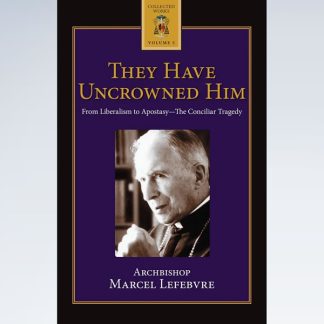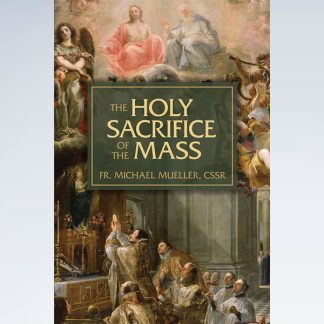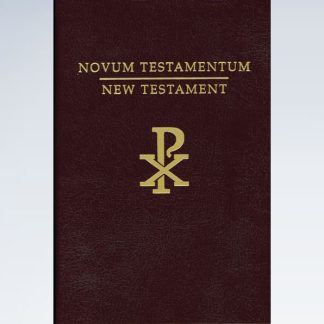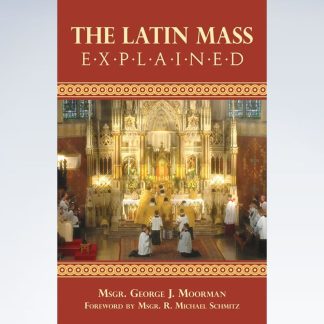The early 15th century Protestant revolt against the Catholic Church was the greatest religious upheaval in the last 2,000 years of Western Civilization. This was due in part because of the invention of the printing press in the mid 15th century allowed anyone to publish anything so long as they had the social connections and financial resources to do so. This could and did lead to serious social, political, economic, and religious controversies. (Today’s parallel to that new communication technology would be the advent of social media). The most critically debated issue was the truth—or not—of the full divinity of Jesus Christ (the Real Presence) in the Eucharist.
The Protestant Reformer, Johannes Oecolampadius, was not the first person to attack traditional Eucharistic doctrine but his book using Scripture and the Church Fathers was the first to gain wide distribution. Bishop John Fisher’s 1527 De Veritate was the rebuttal that presented 1500 years of uniform Catholic theology.
The answer to this question has divided Catholics and Protestants ever since. Did Jesus Christ, the God-man—as God—bestow upon the human race, in perpetuity, His greatest gift during Holy Mass, which was Himself under the species of bread and wine? Or did He—as man—pass around pieces of bread and a cup of wine to share in fellowship with His disciples? And if He acted as God, could there be eternal ramifications for those who deny that He acted as God?
As the expert translator of the five De Veritate Prefaces, Sr. Therese Dougherty, S.S.N.D. (School Sisters of Notre Dame) states, “With his treatise defending the Catholic position in this matter, Fisher entered an arena that eventually contained scores of combatants challenging or defending traditional Roman teaching.
Examination of this work does more than acquaint the reader with the subtleties of the various Eucharistic theologies of the time. It also brings to life countless major and minor figures of the 16th century Reform movement; and further, through Fisher’s thorough treatment of the history o traditional doctrine, it gives a solid background for the problem, and places the controversy properly in context. The study of this work, then, can prove invaluable for both Reformation studies and the history of Eucharistic theology.”
To summarize, the truth, or not, of Christ’s full and divine presence in the consecrated bread and wine is at the very core of what separates Roman Catholics from Protestants. This book presents the arguments for both sides and, critically, the two books were published at the time this divisive issue first entered the public square.











